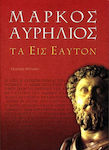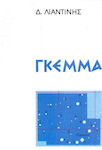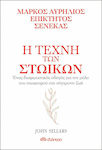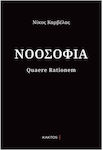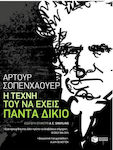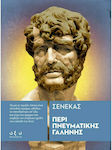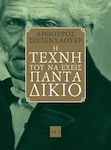Skroutz Buyers Protection
Διόνυσος κατά Εσταυρωμένου, Εκλογή απ' τα κατάλοιπα περί αρχαίου δράματος (1864-1875)Code: 23066795
- Author: Friedrich Wilhelm Nietzsche
- Publisher: Gutenberg
- Μορφή: Soft Cover
- Έτος έκδοσης: 2020
- Αριθμός σελίδων: 284
- Κωδικός ISBN-13: 9789600121087
- Διαστάσεις: 24×17
Friedrich Wilhelm Nietzsche

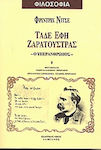
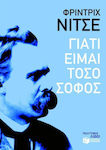



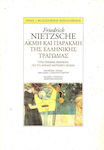
Classical Literature Books
Ακμή και παρακμή της ελληνικής τραγωδίας, Τρία πρώιμα κείμενα για το αρχαίο μουσικό δράμα
from 10,39 €Added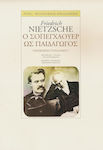

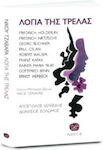
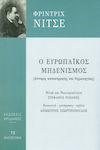
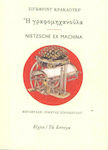


Similar products
All shops
Prices are calculated for:Luxembourg, Other Payment Options
- 11,73 €
- 13,60 €
- 11,90 €
- 13,60 €
- 15,30 €
- 15,30 €
- 13,60 €
- 15,30 €
- 13,60 €
- 11,90 €
Description
"God on the Cross" is a curse against life, a prohibitive sign that warns: "redemption is far from life!" The torn Dionysus is a promise of life: he will be reborn eternally and will return from destruction...
Young Nietzsche speaks of Ancient Greece and its "most difficult" and "highest" achievement, the "cultivation" of Dionysian music for the genesis of Tragedy, which is, as translator Vangelis Douvaleris writes, "the affirmation of life - in all its manifestations".
The book includes three essays, Ancient Musical Drama, Socrates and Tragedy, and Dionysian Cosmogony, written during the time when young Nietzsche was still a student. They are accompanied by the "machine shop," as Nietzsche's translator Douvaleris characterizes it: notes that the philosopher kept during the same period. It is followed by a groundbreaking Assessment of "Socratism" and Socrates, this "four-legged Loxias" who "opened a chasm that would never close." Through these texts, as editor Irkos Apostolidis emphasizes, "we can discern the impetus of a spirit that does not want to fit into molds and confronts all the prevailing values and assumptions of its time."
"Art, and nothing but Art!" Nietzsche writes, "The great motive for life, the great wanderer of life, the great tonic of life. Art, the only supreme counter-force to every will for renunciation of life, Art, the quintessentially anti-Christian, anti-Buddhist, anti-nihilistic force." Speaking of every form of art and the phenomenon of autonomous arts as "the pitiful malignancy of our time," he transports us to ancient Athens and shows how "the Greeks revealed to us all their higher impulses by elevating the orgy to an ideal."
Specifications
- Subtitle
- A selection from the remains of ancient drama (1864-1875)
- Format
- Soft Cover
- Number of Pages
- 284
- Publication Date
- 2020
- Dimensions
- 24x17 cm
Important information
Specifications are collected from official manufacturer websites. Please verify the specifications before proceeding with your final purchase. If you notice any problem you can report it here.
Reviews
Verified purchase
- Paper quality
- Was it easy to read?
- I liked the writing style
- I would read a book by the same author
- I would recommend it for reading
- Was it relatively interesting?










































